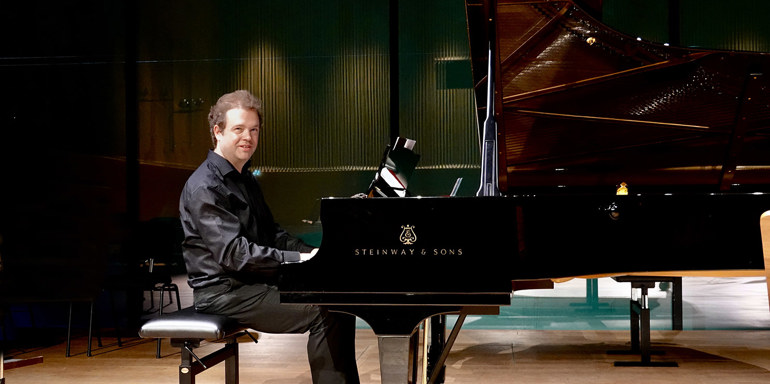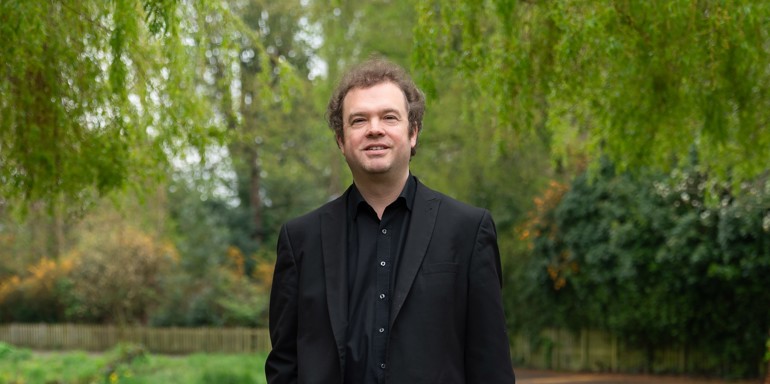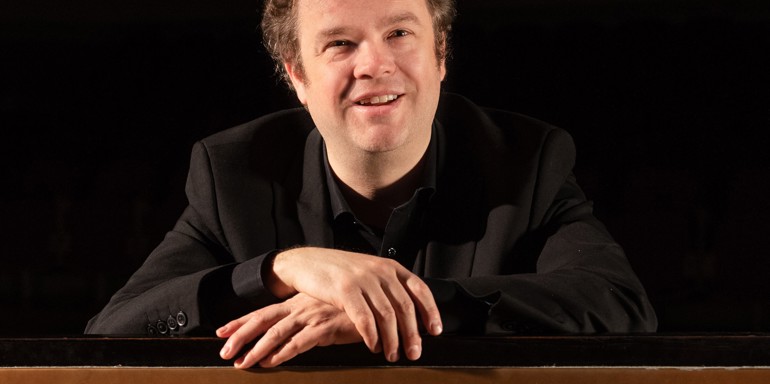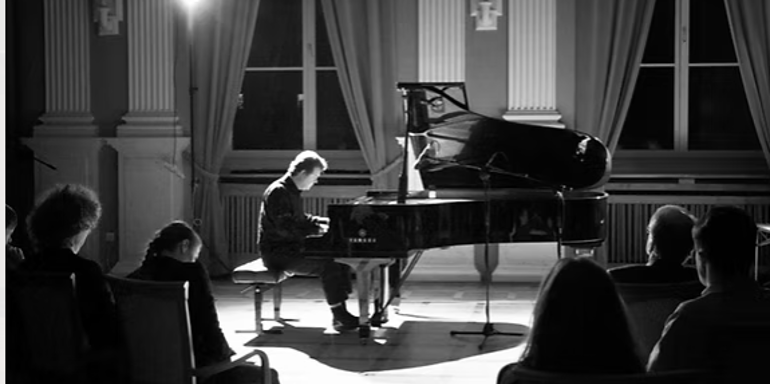
Jakob Fichert is an internationally award-winning pianist who has published recordings from world-class recording labels including Toccata Classics, Resonus Classics, Métier (Divine Art Recordings Group), and Naxos.
He has held masterclasses for conservatories including mainland China, Chile, Hong Kong, and Mexico.
He now works as our Principal Lecturer in Piano, and we caught up with him to talk about his career as a pianist and the teaching journey at Leeds Conservatoire.

Hi Jakob, as a solo pianist as well as a higher education tutor, can you please talk about how you balance this? And what would you say about the classical courses at Leeds Conservatoire?
Both teaching and playing are important to me. I wouldn’t be a good teacher if I didn’t play, and the work with students invigorates my own practice. It’s sometimes challenging to juggle the two things, but it’s worth it. Preparing a solo programme, the most important thing is finding peaceful moments where I can completely focus on the music. For me, this works best early morning.
The classical courses have much to offer at LC. In addition to regular 1-2-1 lessons, students get performance classes and performance opportunities at lunchtime concerts. There are external opportunities as well and an annual piano prize in three rounds. My colleagues and I work closely together to support each student on their musical journey.
And definitely, it’s a great course, and you will meet lots of wonderful people. There are many chances to perform and opportunities to collaborate with your peers and across pathways.

As a classical musician, how to catch the right sound/ characters of the composer/ period is hard to do, how did you work on this with your current students, and could you share some tips for practising for prospective students who are looking at this now?
There are several ways to approach this. It’s always good to keep in mind what sort of instruments were common at the time. For instance, Mozart had a very different piano to ours. Most important of all, though, is to get a clear sense of the character and a musical vision and then explore ways to realise these ideas.
Also, for myself, I like to practise in one-hour chunks, but people are different, and it is for everyone to find out what length of time works best. Most importantly, practise with focus and listening: even if you ‘just’ practise a scale or a finger exercise, make sure that you focus on tone quality. A healthy mix of different styles is pivotal. Make sure to study at least a classical, romantic, and contemporary piece every year.

May I also ask how to build confidence to be a professional performer? And would attending the competitions be a good start?
The most important thing through which to achieve confidence is experience. Please take every opportunity to put yourself out there and perform. Yes, competitions can be very helpful but choose them wisely and build on the experience.
Would you encourage students to try some new styles of work even if they are doing their master’s?
Discovering new musical styles and different ways to play the piano is at the heart of LC’s DNA. Yes, I certainly encourage students at all levels to try non-canonised and contemporary music. Often students discover repertoire by themselves and bring it to the lessons. That’s great.
And last, is there anything you would like to say to the international students including those who used to learn with you?
LC is a welcoming environment. I encourage international students to bring music from their culture, such as Chinese students to bring some Chinese music to the lessons and perform this alongside the canonised music from the European classical tradition.
Also, I want to say to my students who already graduated: Thank you! It has been such a privilege and honour to work with you.
-
Learn more about our Classical course
-
Read more Staff Spotlights






